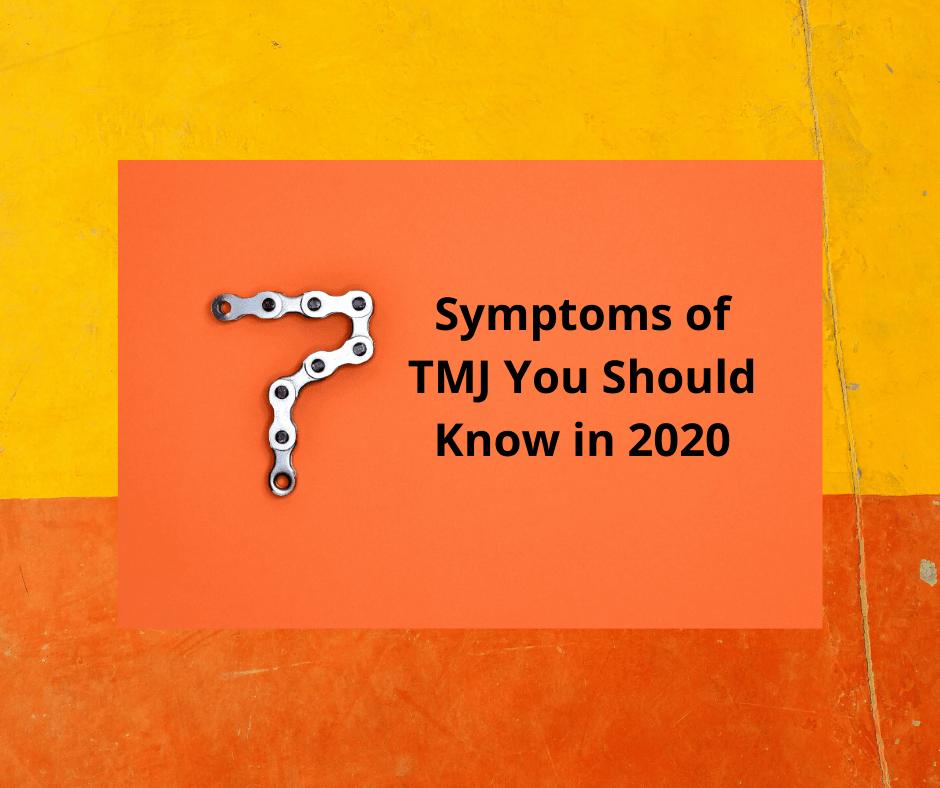7 TMJ Symptoms You Should Know in 2020
Temporomandibular joint or TMJ is a joint which connects your lower jaw to your skull. The joint is present in the both sides of your jaw in front of your ear and is responsible for many mouth activities like moving your jaw, smiling, eating, speaking, and many other activities. The joint acts like a hinge on the both sides of the jaw to make many movements.
Reasons of TMD
When your jaw or jaw muscle is injured it can cause TMJ disorder or TMD. There could be many reasons behind TMD.
Many people grind or clench their teeth during sleep which puts a lot of pressure on the joint and can lead to the TMD.
Those who are suffering from arthritis are also vulnerable to TMD.
The poor neck and face postures that hold muscle also responsible for TMD.
Stress and lack of sleep can also cause TMD syndrome.
TMJ Symptoms
There are many signs and symptoms which help you to diagnose TMJ syndrome.
Jaw or facial pain
A clicking and popping sound in the jaw
Popping sounds in ears
Ear pain/earache,
Headaches
Stiff or sore jaw muscles
Restricted jaw movement
These are the symptoms of TMJ disorder.
Jaw or facial pain: This is not common pain that everyone feels, while you are experiencing pain in your jaw for a long time during certain muscle activities it might be due to TMJ syndrome. Note the facial activities during which you are feeling pain in your jaw.
A clicking and popping sound in the jaw: There will be a popping sound from your TMJ joint while you are opening or closing your mouth. It might be a TMJ symptom. If you feel a clicking a popping sound from your TMJ joint while you move your jaw then could be due to TMD.
Popping sound in ear: Popping sound from your ears could be due to TMD. If you are not experiencing any pain then there is nothing to worry about as these signs disappear by themselves.
Ear pain: Many people think that ear pain is due to some problem in ear but if you experience above symptoms with pain in your ear then it could be because of TMD and not due to any other reason. If you are experiencing constant and sharp pain in your ear then you should consult your dentist.
Headache: There could be many reasons for headache and one could not relate headache to the TMJ disorder but if you pay attention to other symptoms like popping sound from TMJ, and restrict jaw movement, pain in jaw then you can relate headache with TMJ syndrome.
Stiff or sore jaw muscles: Your sore jaw muscles are one of the signs that you are suffering from TMJ disorder. If you are feeling pain in your jaw muscles while making certain facial movements, it could be due to TMD syndrome.
Restricted jaw movement: If you are not able to move your jaw or it becomes too stiff then you might be suffering from TMJ. In this case you might not feel pain but stiffness in your jaw.
So if you are experiencing any of the above symptoms you can consult your doctor. He will examine your jaw muscles to diagnose the exact reason.
However, good news is that many times you don’t need to worry about TMJ syndrome as it does not require any treatment. But if you are feeling discomfort for a long time then you should not ignore it.
For more help managing your TMJ disorder, contact the trusted team Advanced Dental Implant and TMJ Center . You can visit their website or call them at (662) 655 -4868 to ask questions or to schedule an appointment.

